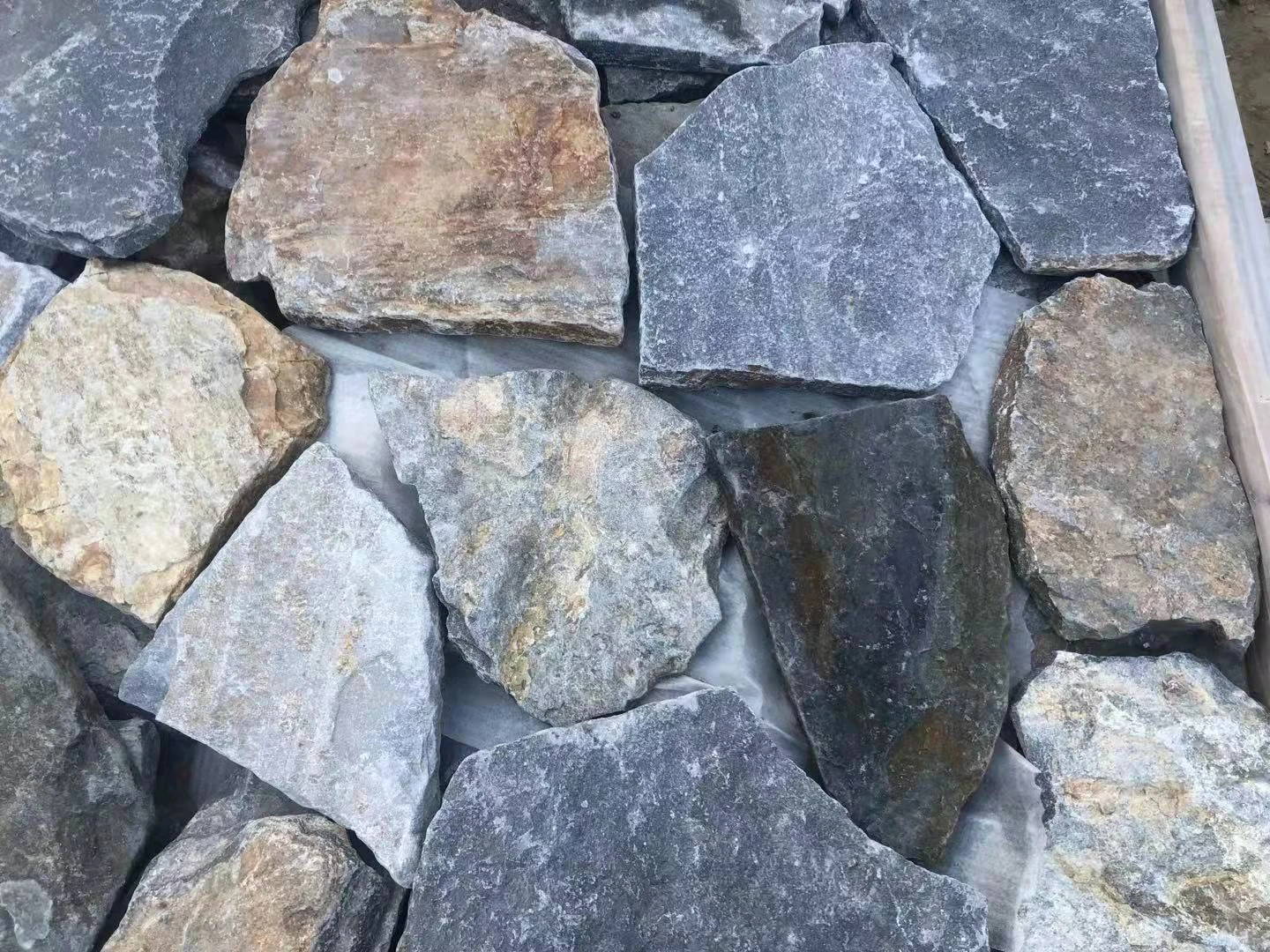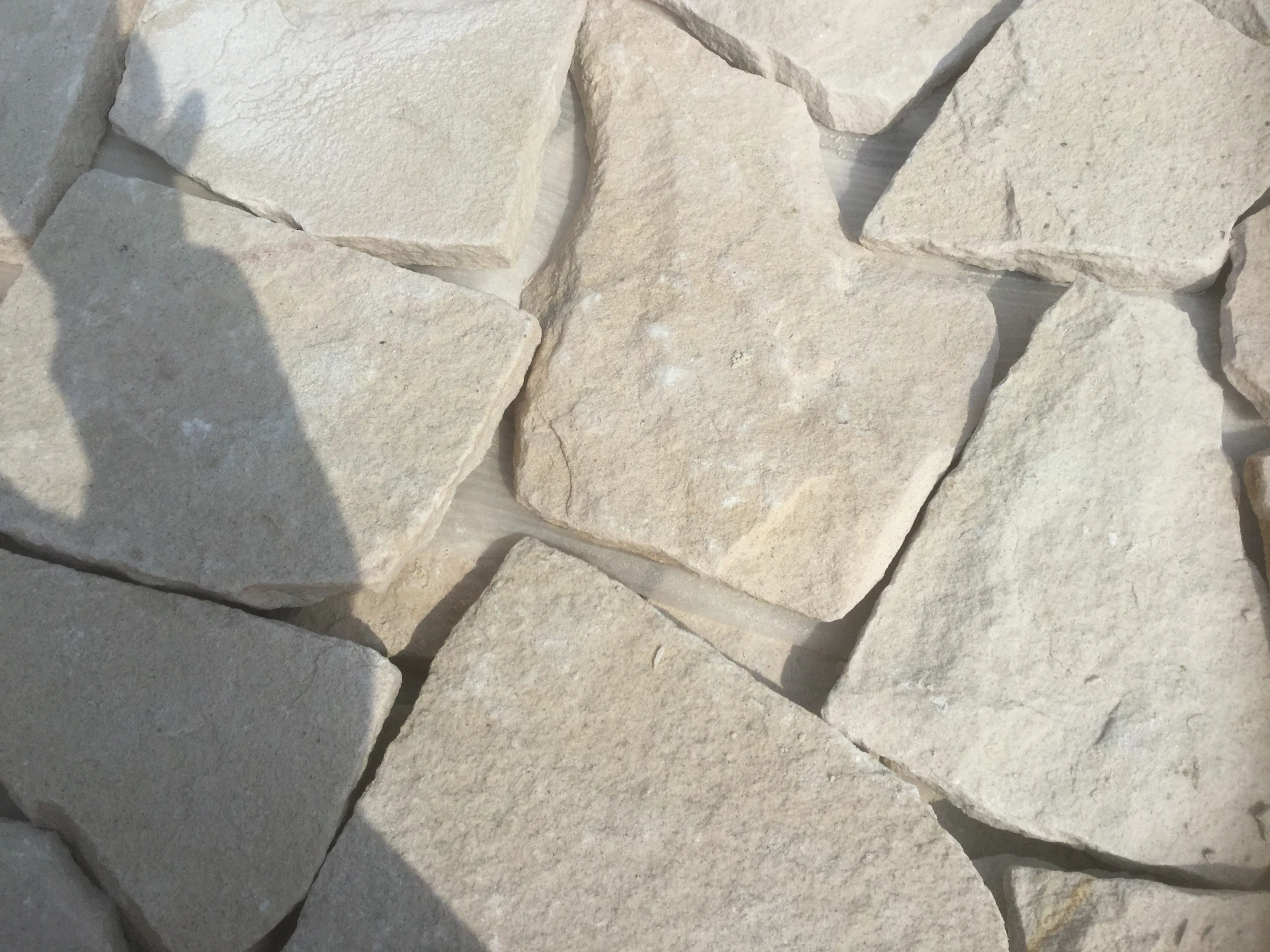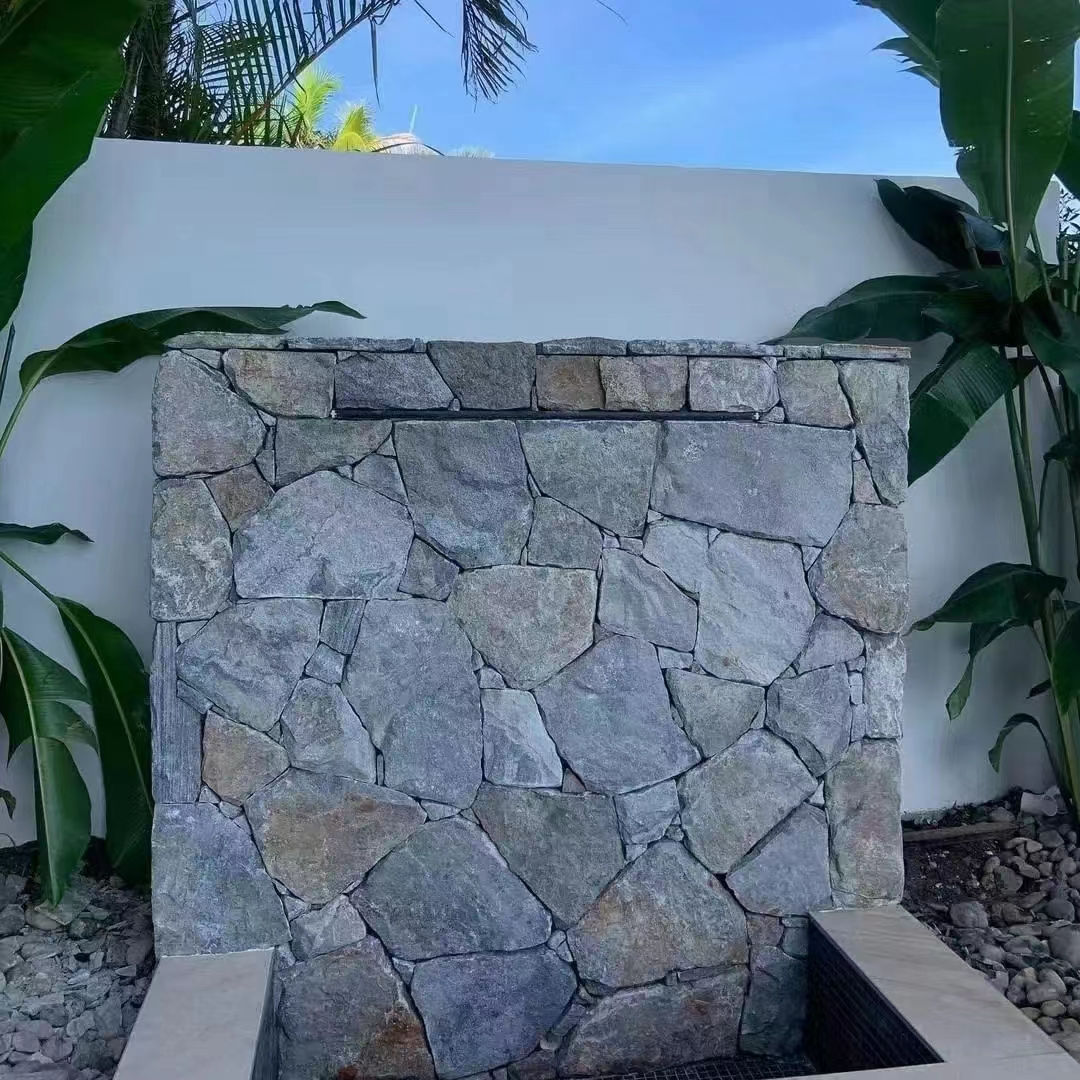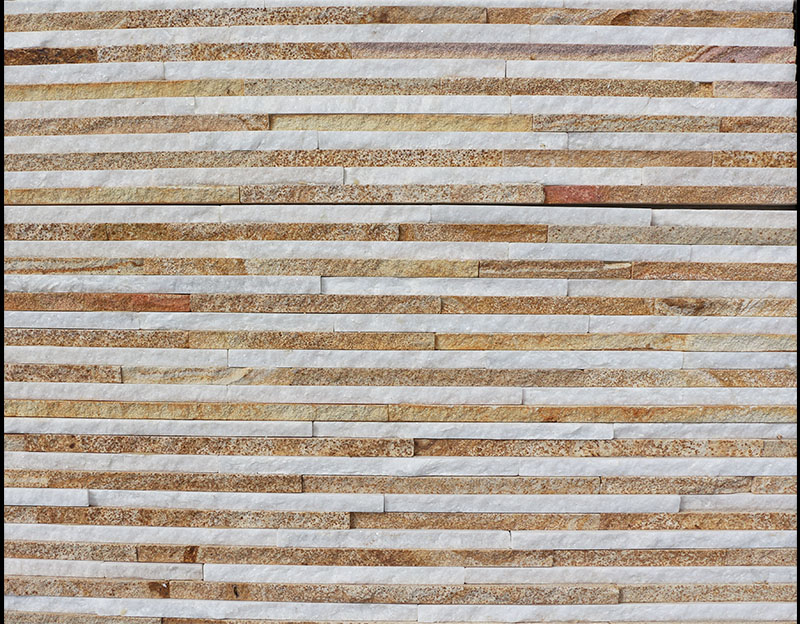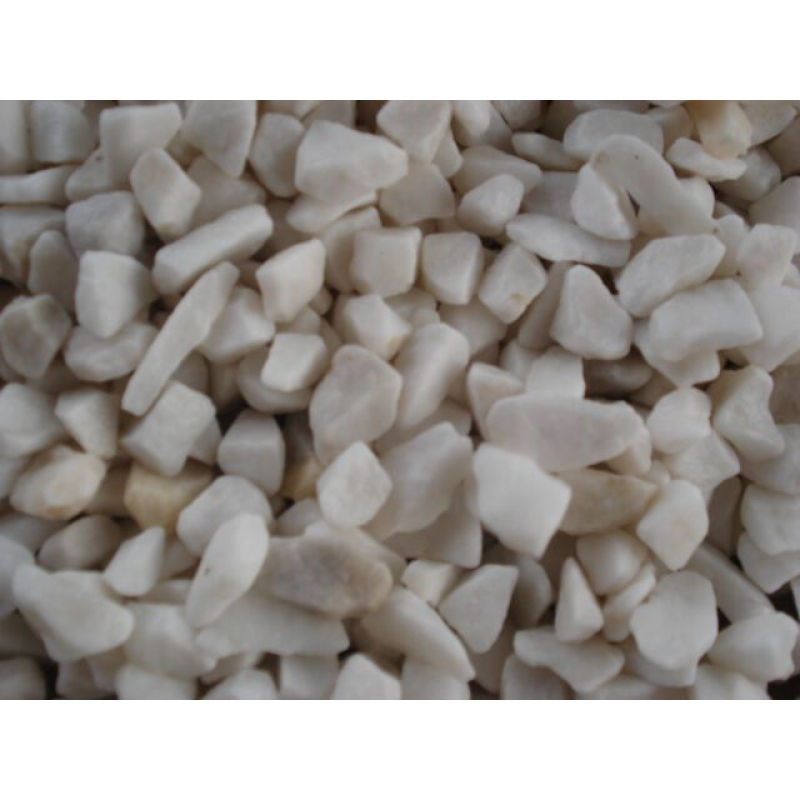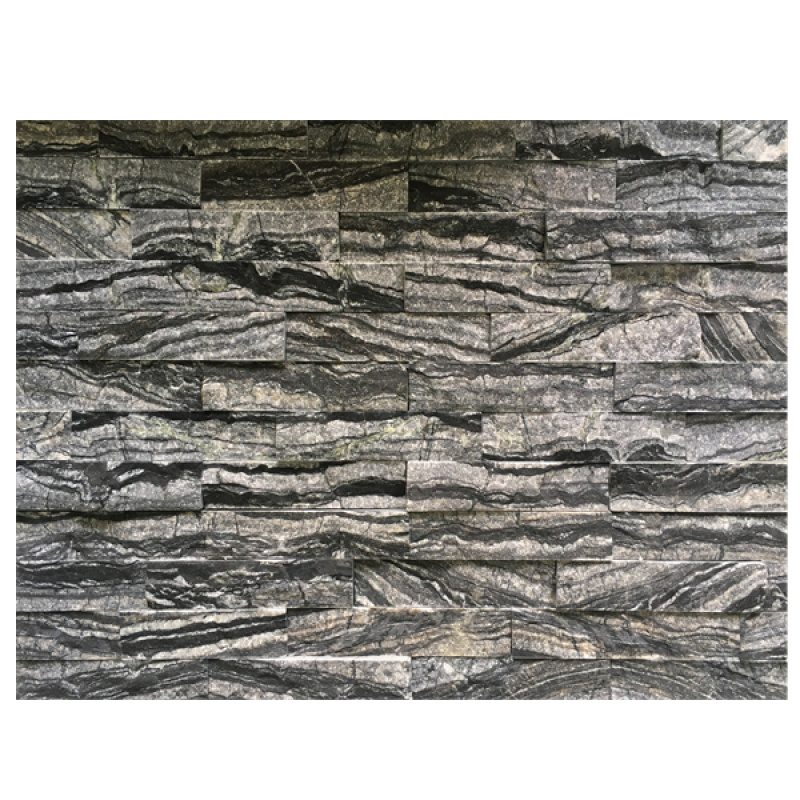Baýdak daşy näme?
Baýdak daşy is a type of flat, thin sedimentary rock that has been utilized for centuries in construction and landscaping. Its irregularly shaped pieces are perfect for creating pathways, patios, and outdoor flooring, and its natural variations in color and texture add a rustic charm to any space. With its durability, weather resistance, and non-slip surface, flagstone is a popular choice for outdoor applications, providing both aesthetic appeal and practical functionality.
How Flagstone is Made
First, a stonemason chisels or strikes larger stones, and as a result, it breaks up into thick, flat sheets. After that, these thinner sheets are then broken up into flagstone-sized pieces. There are multiple types of rock that masons cut and then shape into flagstones. First, the softest and easiest rocks to chisel into shape are sedimentary rocks. This includes varieties such as sandstone, shale, and limestone. Second, harder varieties include igneous rocks such as granite or basalt. Lastly, the toughest types belong to metamorphic rocks, such as kwars and also marble.
daşarky diwar üçin arzan ak tebigy daş örtük
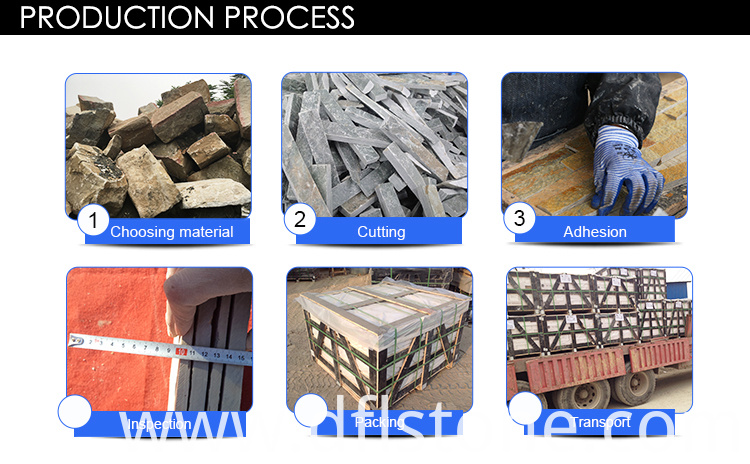
What Are the Types of Flagstone?
When it comes to creating a stunning outdoor living space, the choice of flagstone makes a significant impact on the final result. Two terms you might come across while shopping are “patio” and “select” flagstone. Let’s delve into the differences between these two varieties to help you make an informed decision for your landscaping project.
What is “Patio” Flagstone?
Patio flagstone is smaller, usually 12” to 18”, and thicker than select pieces. It is most often used for creating a flat and even surface for outdoor living areas like patios, walkways, stepping stones, and pool decks. These stones are often more uniform in thickness and shape, making them easier to install in a patio setting. Because of their smaller size, they are typically palletized laying down, which helps prevent breakage during shipment.




